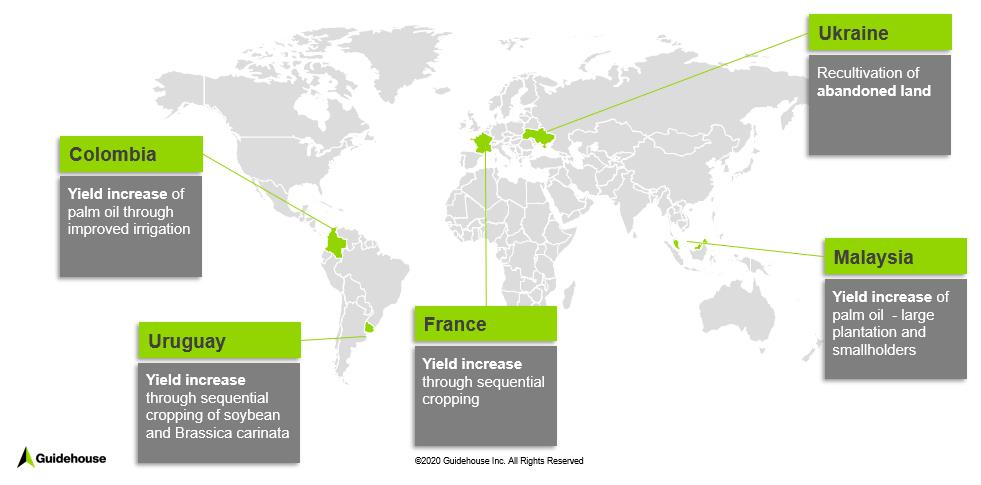The pilot audits for low ILUC-risk biomass certification are currently underway in five different countries around the world. Despite international and domestic travel restrictions due to COVID-19, the pilot audits will continue and this first round of audits will be conducted remotely in most instances, as is common practice since the start of the global pandemic.
The five pilots cover a broad range of feedstocks, including oilseeds and cereals, as well as a geographical breadth of countries. Four of the pilots focus on yield increase and one focuses on recultivation of abandoned land that was formerly agricultural land. The yield increase pilots implement sequential cropping and yield increase for a perennial crop, as these are important parts of the low ILUC-risk methodology to test and further develop.

The aim of the pilot audits is to test the low ILUC-risk certification methodology that was presented to stakeholders in a webinar last November. The methodology builds on the criteria for low ILUC-risk biofuels set out in the Delegated Regulation (EU) 2019/807, and has been converted into a draft certification standard designed to be used as an add-on to an EC-recognised voluntary scheme.
The pilots are a collaborative effort between economic operators who provide the opportunity to test a “real-life” example and provide their data and insights and local auditors who provide insight on the robustness and “auditability” of the methodology in practice. The aims of the consortium partners are to reflect on the issues confronted when implementing the methodology in practice, to review the approach, and provide advice to the Commission to further enhance it.
The findings from the first round of pilot audits will be shared in the spring. In the meantime, we invite all stakeholders to provide us with any input or questions at .